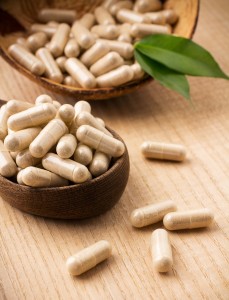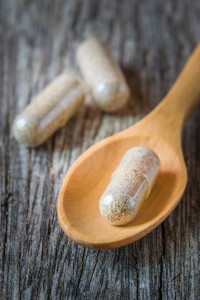Pycnogenol: A New Hero in Supplements?


Interested in an extract packed with anti-inflammatory, antioxidant, immune-boosting, cardiovascular protecting benefits? Have you ever heard of pycnogenol? If not, you should learn about this pine bark extract with the tongue twister name that is gaining popularity in the supplement industry and is surely a compound to pay attention to as research continues to emerge. Is it safe yet? Are there any indications against using it? What are the potential benefits? Read on to learn more about pycnogenol.
 Antioxidants including flavonoids, catechins, phenolic acids and proanthocyanidins abound in this extract. These compounds are a wide-spread part of the human diet, existing in fruits, veggies, chocolate, wine and tea. These special compounds are also found in extracts such as pycnogenol and appear to assist in cell-signaling in the body, potentially playing roles in supporting the immune system, calming inflammation, killing cancerous cells, naturally thinning the blood and protecting neurological tissue. Similar to other plant compounds packed with these types of antioxidants, pycnogenol has been used to treat allergies and asthma due to the histamine blocking affects.
Antioxidants including flavonoids, catechins, phenolic acids and proanthocyanidins abound in this extract. These compounds are a wide-spread part of the human diet, existing in fruits, veggies, chocolate, wine and tea. These special compounds are also found in extracts such as pycnogenol and appear to assist in cell-signaling in the body, potentially playing roles in supporting the immune system, calming inflammation, killing cancerous cells, naturally thinning the blood and protecting neurological tissue. Similar to other plant compounds packed with these types of antioxidants, pycnogenol has been used to treat allergies and asthma due to the histamine blocking affects.
Though many studies are done on mice and rats rather than humans, pycnogenol has been studied for potential benefit in slowing the aging process including supporting cardiovascular, mental clarity and psychiatric disorders and skin health. It appears that pycnogenol extract may have blood sugar and blood pressure lowering effects on both animals and humans, showing promise for aiding in many common ailments. It has also been used in athletes for increasing athletic performance and there are some studies that show in a lab environment, it is able to kill cancer cells and aid in shortening the common cold. More research is needed to make solid conclusions about how best to utilize pycnogenol for health, but studies are promising so far.
 While dosing varies, some studies have shown that pycnogenol has been used safely in doses ranging from 50-450mg per day. Because it is a potent extract full of antioxidants, pycnogenol can have a strong astringent taste and can cause some stomach discomfort when taken orally. Use caution when picking a pycnogenol product if you choose to supplement and be sure that your doctor or medical provider is supportive. Always choose a product that has been third party tested for quality assurance. Also, be aware that this type of supplement may interact with other medications including blood thinners, diabetic medications or medications that suppress the immune system.
While dosing varies, some studies have shown that pycnogenol has been used safely in doses ranging from 50-450mg per day. Because it is a potent extract full of antioxidants, pycnogenol can have a strong astringent taste and can cause some stomach discomfort when taken orally. Use caution when picking a pycnogenol product if you choose to supplement and be sure that your doctor or medical provider is supportive. Always choose a product that has been third party tested for quality assurance. Also, be aware that this type of supplement may interact with other medications including blood thinners, diabetic medications or medications that suppress the immune system.
As research on pycnogenol continues to emerge, you will likely see it being used for a variety of health conditions. Have you heard of pycnogeol yet? Let us know if you’d had success with or have questions about this promising extract!
Resources
Natural Medicines Database. Pycnogenol. https://naturalmedicines.therapeuticresearch.com/databases/food,-herbs-supplements/professional.aspx?productid=1019. Updated 8/19/16. Accessed 6/29/16.
Linus Pauling. http://lpi.oregonstate.edu/mic/dietary-factors/phytochemicals/flavonoids. Reviewed 2/2016. Accessed 7/4/16.
Hu S, Belcaro G, Cornelli U, Luzzi R, Cesarone M, Dugall M, Feragalli B, Errichi B, Ippolito E, Grossi M, Hosoi M, Gizzi G, Trignani M. Effects of Pycnogenol® on endothelial dysfunction in borderline hypertensive, hyperlipidemic, and hyperglycemic individuals: the borderline study. Int Angiol. 2015;34(1):43-52.
Gulati OP. Pycnogenol® in Metabolic Syndrome and Related Disorders. Phytother Res. 2015;29(7):949-68.